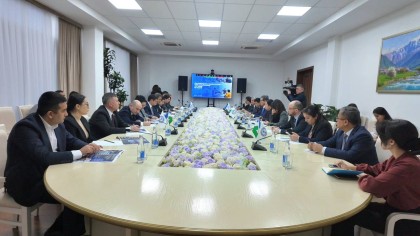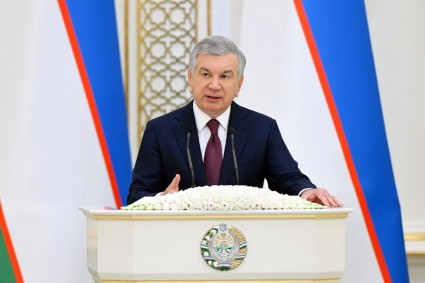At the initiative of the Chamber of Commerce and Industry of Uzbekistan (CCI) and the Uzbek embassy in Pakistan, a business delegation visited Pakistan’s largest seaport, Karachi, the CCI said. The visit reportedly was aimed at exploring the possibilities of expanding transit routes and entering international markets in the context of an unstable geopolitical situation.
The port of Karachi, through which up to 60% of Pakistan's international trade cargo passes annually, is considered a key logistics hub in South Asia. Its infrastructure allows working with transit flows heading to the Middle East, East Africa, as well as Europe and China.
During the talks, the Uzbek delegation proposed to set up a special warehouse for goods from Uzbekistan on the territory of the port. Such a solution could optimize logistics chains, reduce transportation costs and shorten the time it takes for products to reach foreign markets.
The Pakistani officials voiced their intention to step up the supply of Uzbek-made textiles, fruits and vegetables, chemical and building materials. Officials of the Karachi port also presented digital solutions in the field of cargo tracking, electronic declaration and container logistics.
On June 23, during a meeting with the economic bloc of the government, the president Shavkat Mirziyoyev ordered to intensify the search for alternative logistics corridors in the face of increased risks associated with instability in a number of traditional directions, including the Middle East.
The Transport Minister Ilkhom Makhkamov reported that options for deliveries using the infrastructure of Pakistani, Turkish and Caucasian ports are being explored. In particular, in the event of difficulties in the Iranian direction, cargo can be redirected through Karachi, and goods from Turkey can be delivered via the Middle Corridor, through Georgia and Russia.
According to the minister, in the near future it is planned to prepare two or three alternative routes in each international trade direction.














